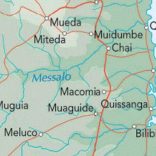Mozambique: Two vehicles attacked by terrorists - AIM
Grandchildren of Portuguese immigrants may now apply for citizenship

File photo / Portuguese minister of Justice, Francisca Van Dunen
Grandchildren of Portuguese people born abroad who, among other requirements, have “bonds of effective connection to the Portuguese national community” can now acquire Portuguese nationality, according to a decree approved on Thursday by the Portuguese cabinet.
The decree establishes the terms in which the existence of these ties is to be recognised and determines that, to obtain Portuguese nationality, grandchildren of Portuguese who were born outside of Portugal must further declare that they “want to be Portuguese”.
Another requirement is that “they have not been convicted, with a final sentence, for the practice of a crime punishable with a maximum imprisonment of three years or more (according to Portuguese law) and that they register their birth in the Portuguese civil registry”.
The Portuguese Minister of Justice, Francisca Van Dunem, said that the diploma approved yesterday also simplifies the procedures for naturalisation and acquisition of nationality, especially in those cases where it is assumed that, when the interested party is a natural and national of a country that has had Portuguese as its official language for at least 10 years and has lived in Portugal for at least five years, the person is presumed to have knowledge of the Portuguese language.
Thus, for example, anyone who is a citizen of any other Portuguese speaking country and born in Portugal is now exempt from proving knowledge of the Portuguese language in the process of naturalisation and acquiring nationality.
Another simplification results from the waiver of the presentation of the certificate of criminal record from the country of birth or of the country of nationality in those cases where the concerned person has not resided there at a relevant age for registration (that is, after the age of 16).
This exemption covers, for example, all those interested who, having been born in Portugal, have always resided there, have not resided or even travelled to their country of nationality, and are therefore exempted from presenting the certificate of criminal registration of their country of nationality.
With regard to the need, as a result of the amendments to the nationality law made in 2015, to assess whether the applicant may constitute a danger or threat to national security or defence, due to involvement in terrorism-related activities, the Foreigners and Borders Service (SEF) and the Judicial Police are to provide this information.
Francisca Van Dunem admitted that nationality issues “are very complex” and are likely to generate “an environment of some difficulty of understanding” not only in the general public but also in the services that deal with these matters.
That is why – revealed the minister – an “information chart” will be made, which will be a “good practice tool for services” and will be available so that all people have the same “level of information” in order to perceive what is necessary and required.
On the other hand, as to the definition of the terms in which there is a requirement of “ties of effective connection to the national community” for the purpose of acquiring Portuguese nationality, the government says it intends to make this process “faster and more predictable for the applicant”.
In order to prove the effective connection to the national community, the applicant must, among other documentation, prove legal residence in national territory, have a property registered in his/her name for more than three years or lease agreements in force for more than three years, related to real estate in Portugal. Applicants must also provide evidence of regular participation during the last five years to the date of the request in the cultural life of the Portuguese community of the country where he or she resides.
For this purpose, activities involving Portuguese cultural and recreational associations of these communities are applicable. The applicant may also, in certain cases, have to provide proof of residence or connection to a Portuguese historical community abroad.












Leave a Reply
Be the First to Comment!
You must be logged in to post a comment.
You must be logged in to post a comment.